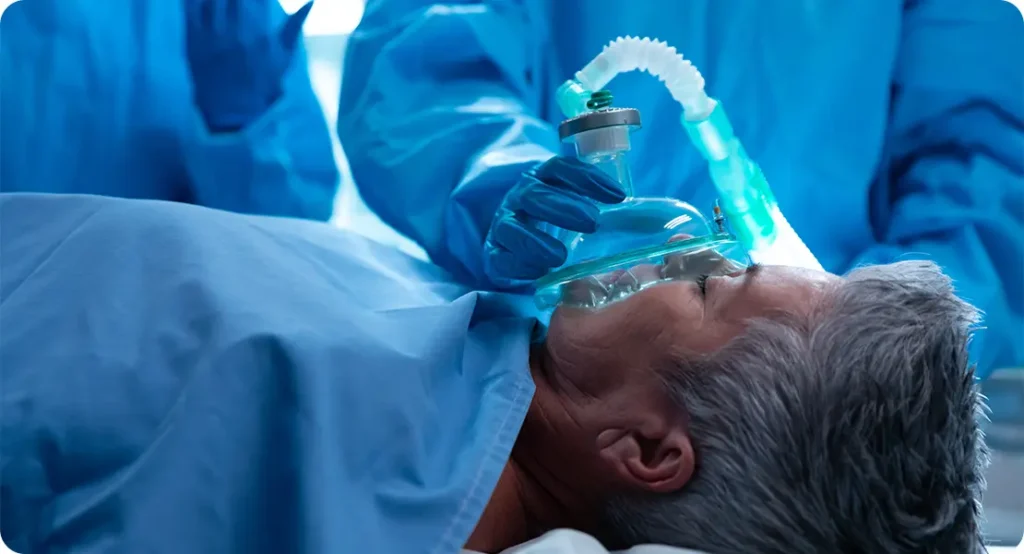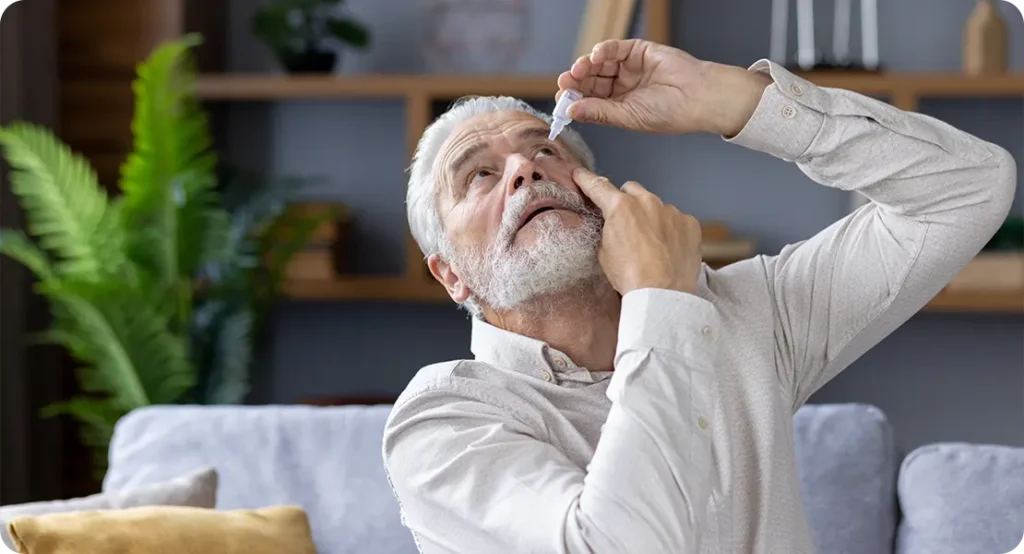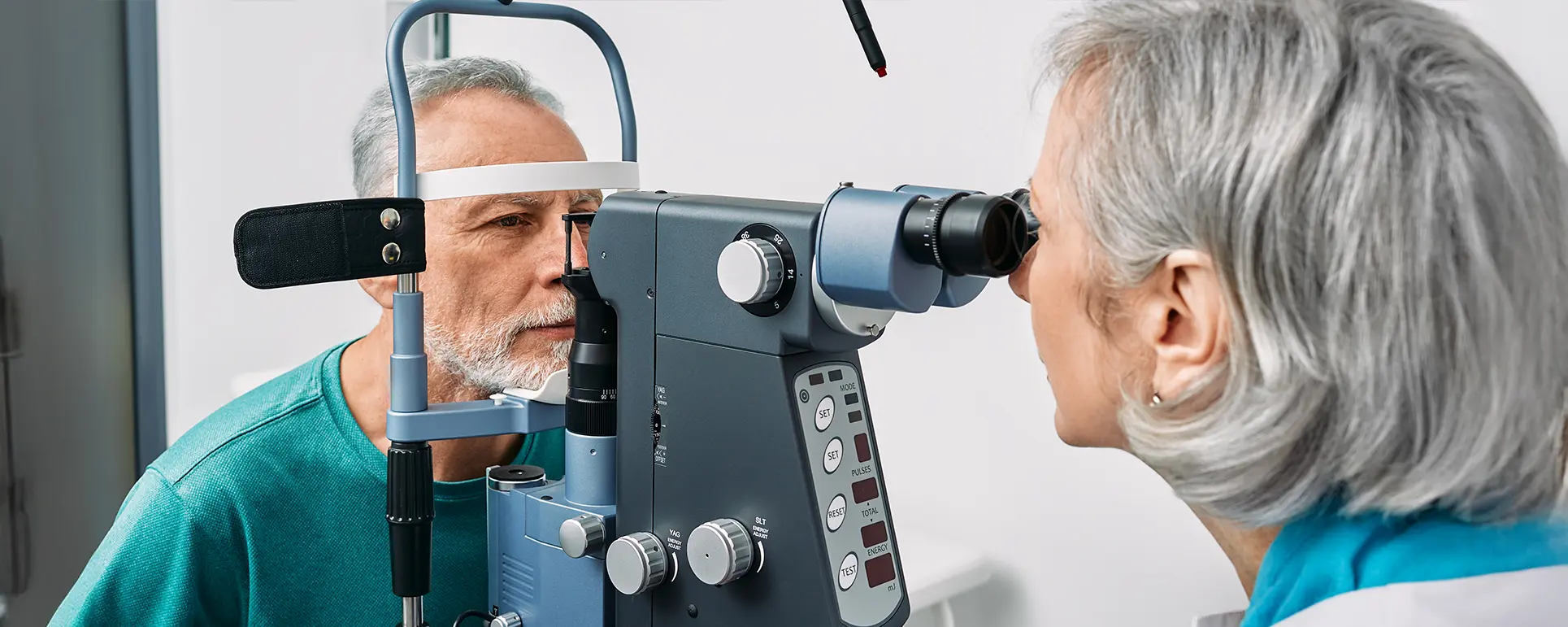Cataracts and dementia are two of the most common conditions affecting older adults in the UK—and they frequently overlap. If you’re caring for someone who has both, or you’re a healthcare provider managing their care, you’re probably asking: is cataract surgery still appropriate? And if so, how do we approach it ethically, safely, and with their quality of life in mind?
Let’s break it down and look at the key issues: how to manage informed consent, choose the right anaesthesia, and weigh the risks and benefits—particularly when the patient has significant cognitive impairment. We’ll also explore whether restoring vision might actually improve cognitive function or even reduce accident risk.
Understanding the Overlap Between Dementia and Cataracts
Dementia affects an estimated 944,000 people in the UK, and this figure is expected to rise significantly over the coming decades. At the same time, cataracts are the leading cause of visual impairment in older adults, often occurring in the same population group. The co-occurrence of these two conditions creates a unique set of clinical and ethical challenges.
When someone with dementia begins to lose their vision from cataracts, the impact goes beyond sight. Visual impairment can worsen confusion, disorientation, social isolation, and even accelerate the progression of dementia symptoms. That’s why it’s so important to consider whether cataract surgery could help—not just their eyesight, but their cognitive and functional wellbeing.
But not every patient is the same. Dementia is a spectrum, and cataracts vary in severity too. What works for one person may not be suitable for another.
Ethical Considerations: Who Decides and on What Basis?
Informed Consent and Capacity Assessment
Perhaps the biggest ethical hurdle is consent. Can someone with dementia truly give informed consent for cataract surgery?
The answer depends on the individual’s capacity at the time of the decision. Under the Mental Capacity Act 2005, clinicians must assume capacity unless proven otherwise, and they must take all practical steps to help the person make their own decision. This includes:
- Simplifying explanations and using visual aids
- Providing extra time for processing information
- Involving loved ones or carers for support (without letting them make the decision)
If the patient lacks capacity, a decision must be made in their best interests. That’s not just a tick-box exercise—it involves weighing their past and present wishes, beliefs, and values.
Acting in the Patient’s Best Interests
Best interest decisions are about more than medical facts. They require input from the entire care team, as well as family or anyone else who knows the patient well. Questions to ask include:
- Did the patient ever express views on medical interventions in the past?
- Would restored vision help them maintain independence or safety?
- Might surgery cause distress or confusion that outweighs the benefits?
In borderline cases, an independent mental capacity advocate (IMCA) may be appointed to support the decision-making process.
Choosing the Right Anaesthesia: Local vs General

- Why Anaesthesia Choice Matters
Anaesthesia decisions carry more weight in patients with cognitive impairment. General anaesthesia has been linked to postoperative delirium and longer recovery in this group. That’s why ophthalmic surgeons often prefer local anaesthesia or even no anaesthesia in cooperative patients. - Local Anaesthesia
Local anaesthesia, particularly topical or sub-Tenon’s block, avoids the cognitive risks associated with general anaesthesia. It also enables same-day discharge, which reduces hospital-associated confusion. But it does require patient cooperation and the ability to remain still—which may not always be possible. - General Anaesthesia
For some patients with more advanced dementia, general anaesthesia may be the only realistic option. It ensures safety during the procedure but does raise the risk of postoperative delirium, longer hospital stays, and prolonged recovery times. This is especially important in frail patients who already have low cognitive reserve.
In these cases, having a specialist anaesthetist familiar with cognitive decline can be invaluable. The use of short-acting agents, meticulous monitoring, and minimal sedation can all help to reduce risks.
Preoperative Assessment: Tailoring the Pathway
Communication Adjustments
Patients with dementia may not be able to articulate symptoms or needs clearly. Eye clinics must be equipped to communicate effectively using non-verbal cues, repetition, written aids, and family support. Eye tests might need to be adapted—Snellen charts may not be feasible, so alternatives like contrast sensitivity or hand movements can help gauge visual potential.
Multidisciplinary Involvement
Preoperative planning should involve:
- Ophthalmologist
- GP
- Neurologist or psychiatrist (if involved in dementia care)
- Anaesthetist
- Dementia nurse or care coordinator
Each offers insights into the patient’s stability, needs, and whether the surgery is likely to improve quality of life.
Establishing Goals of Surgery
Is the surgery intended to restore functional vision, prevent falls, or improve communication and recognition of faces? Setting realistic goals helps manage expectations and guide postoperative care.
Visual Recovery and Cognitive Impact
Can Vision Improvement Slow Cognitive Decline?
Emerging evidence suggests that vision restoration may have cognitive benefits. A 2022 study in JAMA Internal Medicine showed that cataract surgery was associated with a reduced risk of developing dementia later on. While this doesn’t mean surgery reverses cognitive decline, it could help preserve remaining function.
Improved vision can also lead to:
- Better mobility
- Fewer falls
- Greater engagement with surroundings
- Increased participation in social activities
All of which are known to help delay the progression of cognitive symptoms.
Safety and Fall Prevention
Vision loss contributes to more than one-third of falls in older adults. For someone with dementia—already at increased fall risk—this can be catastrophic. If cataract surgery reduces that risk, the benefit is not just quality of life but also safety and reduced burden on carers.
Postoperative Care: Special Considerations for Dementia Patients
Medication Compliance and Eye Drop Use
Post-surgery, patients usually need several eye drops a day for weeks. That’s hard enough for someone without cognitive issues—imagine the confusion and distress it could cause for someone with dementia.
Solutions include:
- Simplified drop regimens
- Carer-administered drops
- Long-acting medications
- Preloaded drop devices or nurse support visits
Caregivers should be briefed well in advance and provided written as well as verbal instructions.

Monitoring for Complications
People with dementia may not report pain or visual disturbance after surgery. Instead, they might become more agitated, confused, or withdrawn. That’s why family and carers need to be alert for subtle behavioural changes that could signal complications like infection or raised intraocular pressure.
Case Selection: When to Proceed and When to Pause
Not every patient with dementia is a candidate for cataract surgery. There are red flags to consider:
- Inability to tolerate preoperative assessment or biometry
- Severe behavioural disturbance
- No identifiable visual potential (e.g. end-stage macular degeneration)
- Advanced dementia with minimal engagement or quality of life benefits
But equally, don’t write off surgery just because someone has a dementia diagnosis. Many patients in the early-to-moderate stages can benefit greatly from improved vision—provided the approach is careful, compassionate, and tailored.
Supporting Carers Through the Process
Caring for someone with dementia is already a full-time role. Adding a surgical journey—no matter how minor—can be overwhelming. Clinics should provide:
- Pre-surgery information sessions for carers
- A named point of contact
- Flexible scheduling
- Clear, jargon-free written materials
And most importantly, reassurance. Families often fear that surgery might make things worse. Being transparent about the risks, benefits, and what to expect can make all the difference.
Research and Guidelines: Where Are We Now?
There is still a lack of formal, specific UK guidelines on cataract surgery in dementia patients. However, NICE guidelines on dementia and cataracts respectively can be applied in tandem.
Some key research trends include:
- Use of preoperative cognitive assessments to stratify risk
- Delirium-reduction protocols in ophthalmic day surgery
- Randomised trials looking at cognitive outcomes post-surgery
Until we have more data, individualised decision-making remains the gold standard. But that doesn’t mean flying blind—it means using all available clinical, ethical, and familial input to shape a sensible path forward.
Frequently Asked Questions (FAQs)
- Can someone with dementia give consent for cataract surgery?
Yes—if they are assessed as having the capacity to do so at the time of the decision. Capacity is decision-specific and time-specific. Under the Mental Capacity Act 2005, clinicians must assume a person has capacity unless it is clearly proven otherwise. If the individual lacks capacity, a decision can still be made in their best interests, considering their past wishes, beliefs, and overall well-being. - Is cataract surgery safe for people with dementia?
Generally, yes—when carefully planned. Local anaesthesia is often preferred to reduce risks like postoperative delirium, but general anaesthesia can be used if absolutely necessary. The key is tailoring the approach based on the patient’s cognitive state, overall health, and ability to cooperate. With proper support and preparation, many people with dementia can undergo cataract surgery safely. - Will cataract surgery improve cognitive function?
While it won’t reverse dementia, there is evidence that restoring vision can slow cognitive decline and improve engagement, mobility, and mood. Studies have shown that patients who regain sight often experience fewer falls, greater independence, and improved quality of life—all of which may help stabilise cognitive symptoms. - How do you manage postoperative eye drops in someone with memory issues?
This is one of the biggest challenges. Simplified drop schedules, carer administration, preloaded applicators, or home visits by nurses can help. It’s essential that carers are well-informed and supported in managing the post-op regime. In some cases, using long-acting drops during surgery may reduce the need for frequent administration afterward. - How can I tell if cataracts are worsening my loved one’s dementia symptoms?
It can be tricky, as the signs of vision loss and cognitive decline often overlap. Watch for increased confusion in unfamiliar environments, hesitation on stairs, or withdrawal from activities they previously enjoyed. If they seem more disoriented in dim lighting or struggle with face recognition, cataracts could be playing a role. An eye exam can help confirm whether visual impairment is contributing to their symptoms. - What if my loved one becomes distressed on the day of surgery?
This is a common concern. Preparation is key. Familiar routines, having a trusted carer present, and minimising waiting times can all help. At clinics like ours, we work closely with carers to create a calming experience—sometimes scheduling early appointments or arranging preoperative visits to reduce anxiety. Sedation can be used in select cases if distress becomes unmanageable, but this is always carefully balanced with safety considerations - Will both eyes be treated at once in someone with dementia?
Usually not. For patients with cognitive impairment, we typically operate on one eye first to assess both the physical and behavioural response to surgery. If recovery goes smoothly and vision improves, we can then plan the second eye. This staged approach allows us to minimise stress and monitor for any adverse cognitive effects before proceeding further. - Are there specific clinics experienced in handling dementia patients needing cataract surgery?
Yes, some private and NHS ophthalmology centres are more experienced in managing patients with cognitive impairments. At the London Cataract Centre, we regularly treat patients with dementia and other cognitive conditions. Our team takes a multidisciplinary approach, offering longer appointment times, tailored communication strategies, and full support for carers throughout the process. If you’re considering private cataract surgery in London, you’re in safe hands with a team that truly understands the added complexities involved.
Final Thoughts
Cataract surgery in patients with dementia or cognitive impairment is never a “routine” case. It demands flexibility, sensitivity, and a solid grasp of both clinical and ethical frameworks. But done right, it can be life-changing—not just for the patient, but also for those who care for them.
The key is not to rush. Take time to assess, involve the right people, and ask the right questions. Because in this scenario, a clear vision is about far more than just sight.
If you’re considering this for yourself or a loved one, the best place to start is with a comprehensive consultation. Speak to your GP, reach out to your eye specialist, and if you’re thinking about private cataract surgery in London, feel free to contact us at the London Cataract Centre. We have extensive experience in managing patients with cognitive impairments. You deserve care that sees the whole picture.
References
- Maharani, A., Dawes, P., Nazroo, J., Tampubolon, G. and Pendleton, N., 2018. Longitudinal relationship between hearing aid use and cognitive function in older Americans. JAMA Otolaryngology–Head & Neck Surgery, 144(7), pp.563–569.
- Tseng, V.L., Yu, F., Lum, F. and Coleman, A.L., 2015. Cataract surgery and the risk of developing dementia: a retrospective longitudinal cohort study. JAMA Internal Medicine, 175(3), pp.410–417.
- National Institute for Health and Care Excellence (NICE), 2018. Dementia: assessment, management and support for people living with dementia and their carers (NG97).
Available at: https://www.nice.org.uk/guidance/ng97 - Royal College of Ophthalmologists, 2023. Cataract Surgery Guidelines – Updated Standards.
Available at: https://www.rcophth.ac.uk/resources-listing/cataract-surgery-guidelines/

